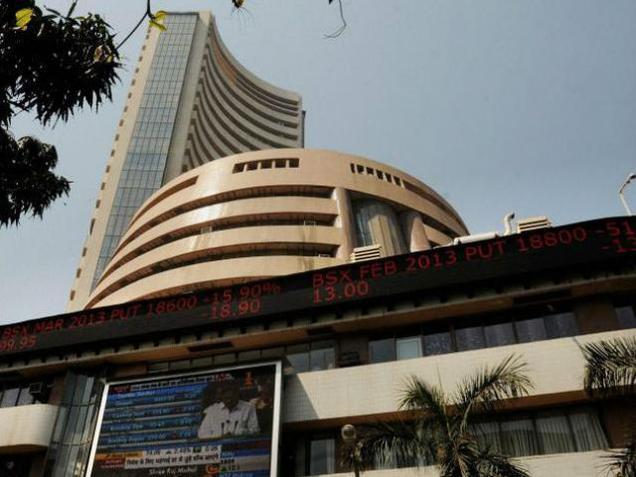Mumbai: A global sell-off triggered by trade protectionist measures imposed by major world economies unleashed the bears in the Indian equity markets during the week, pushing the key indices NSE Nifty50 and BSE Sensex to their 5-month lows.
Apart from the prospects of escalating trade wars, the risk-taking appetite of investors was marred by rising crude oil prices, the ongoing turmoil in the domestic banking system as well as the uncertainty on the political situation in the country.
On a weekly basis, the barometer 30-scrip Sensitive Index (Sensex) of the BSE shed 579.46 points or 1.75 per cent to close at 32,596.54 points — its lowest closing level since October 23, 2017.
On the National Stock Exchange (NSE), the wider Nifty50 ended below the psychologically important 10,000-mark and closed trade at 9,998.05 points — down 197.1 points or 1.93 per cent from its previous week’s close — its lowest closing level since October 11, 2017.
“Benchmark indices Sensex and Nifty fell 1.75 per cent and 1.93 per cent respectively during the week, posting their longest stretch of weekly losses in 16 months as the domestic market joined a global sell-off triggered by prospects of a trade war,” Arpit Jain, Assistant Vice President at Arihant Capital Markets, told IANS.
According to D.K. Aggarwal, Chairman and Managing Director of SMC Investments and Advisors, the global stock market traded lower after US President Donald Trump announced sweeping tariffs on Chinese goods, a move that has heightened concerns that the global trade war will escalate.
“Back at home, dragged by escalating trade tensions among global economies, the Indian stock market too witnessed selling pressure amid other domestic factors. Since the beginning of the year domestic market witnessed some hiccups on the back of imposition of LTCG (long term capital gains) tax, liquidity issues, rising bond yields and volatile global markets,” Aggarwal told IANS.
“Also, a surge in crude oil prices impacted the market sentiment. The Indian rupee, too, witnessed a volatile move ahead of Fed rate-hike and global trade war concerns,” he added.
On the currency front, the rupee weakened by eight paise to close at 65.01 against the US dollar from its previous week’s close at 64.93.
“Sentiments were affected by rising crude oil prices, bond yields and a troubled domestic banking system. Uncertainty around the political situation in the country added to the woes, and collectively dragged the sentiment across the street,” Gaurav Jain, Director at Hem Securities, told IANS.
Provisional figures from the stock exchanges showed that foreign institutional investors purchased scrips worth Rs 2,524.13 crore and the domestic institutional investors (DIIs) scrips worth Rs 211.91 crore during the week.
Figures from the National Securities Depository (NSDL) revealed that foreign portfolio investors invested in equities worth Rs 2,060.04 crore, or $316.99 million, during March 19-23.
“The market breadth was negative in three out of the five trading sessions of the week. The top sectoral losers were realty, metal, Bank Nifty and pharma indices. There were no gainers,” said Deepak Jasani, Head – Retail Research, HDFC Securities.
The top weekly Sensex gainers were: NTPC (up 2.90 per cent at Rs 170.15); IndusInd Bank (up 1.36 per cent at Rs 1,750.20); Power Grid (up 1.04 per cent at Rs 194.25); Hindustan Unilever (up 0.05 per cent at Rs 1,299.75); and Larsen and Toubro (up 0.01 per cent at Rs 1,267.75).
The losers were: Yes Bank (down 8.37 per cent at Rs 286.70); ICICI Bank (down 7.48 per cent at Rs 275.80); State Bank India (down 7.13 per cent at Rs 234.60); Tata Steel (down 5.65 per cent at Rs 566.60); and Axis Bank (down 4.29 per cent at Rs 501).
IANS

